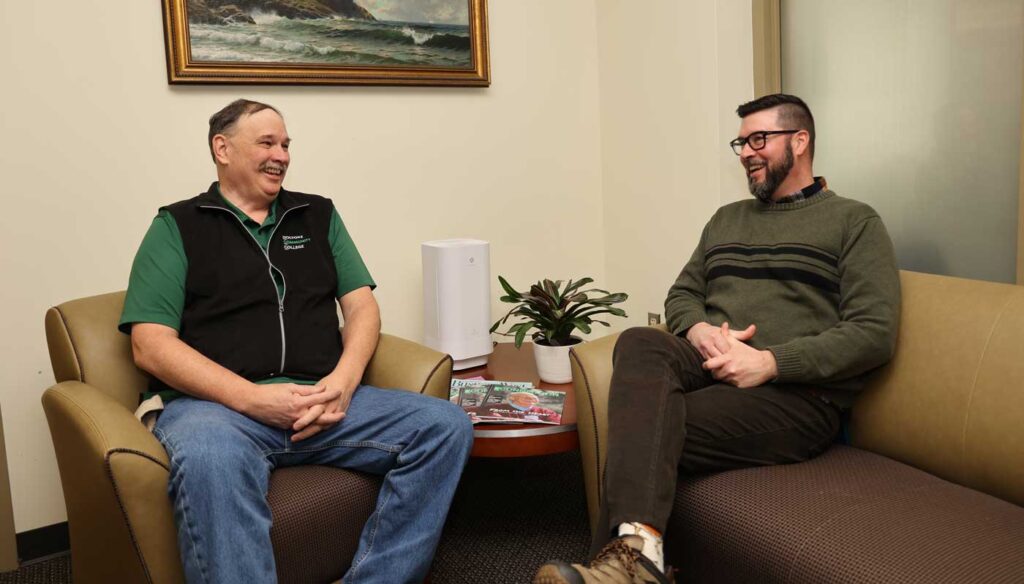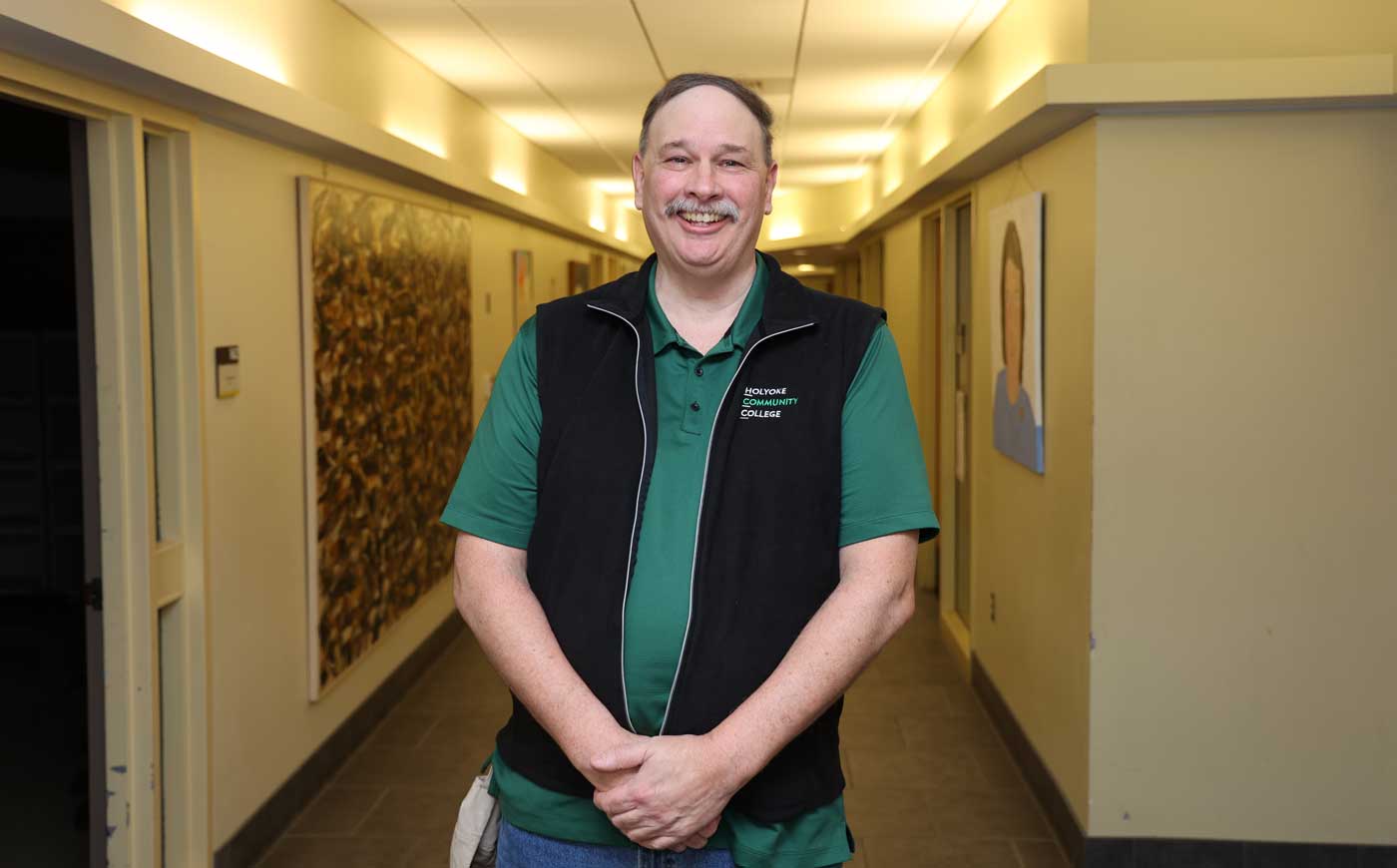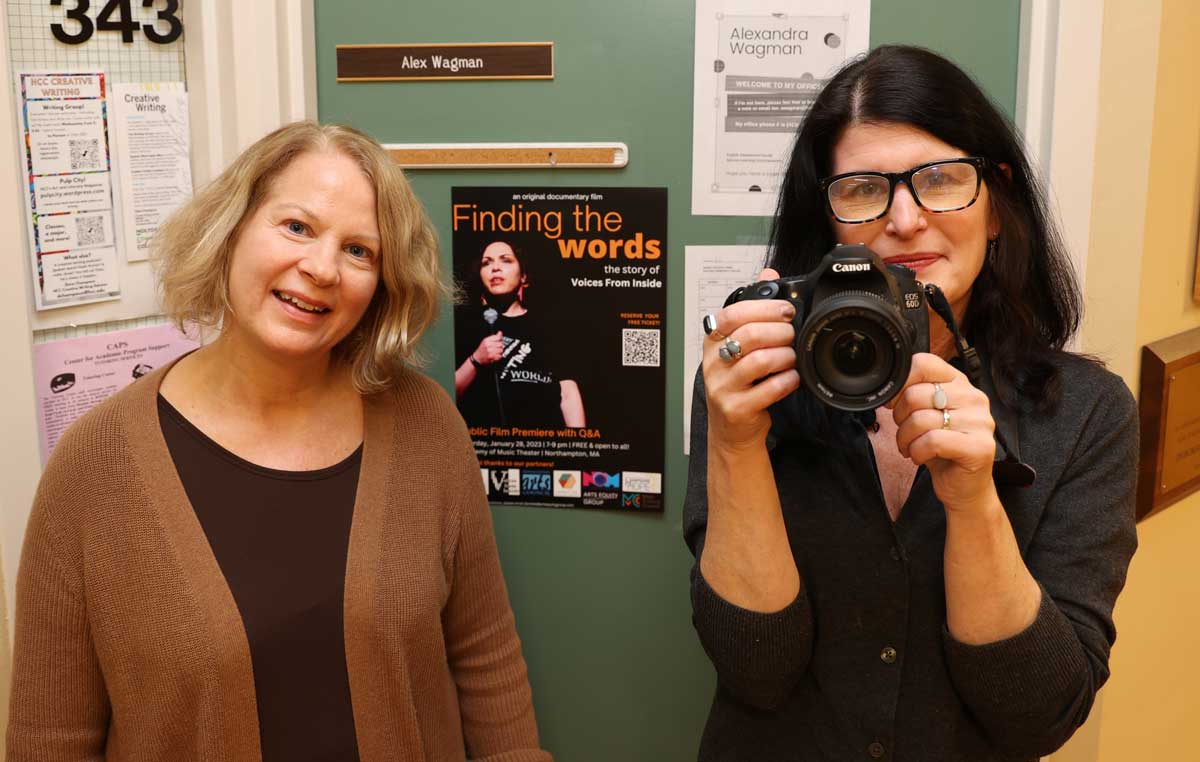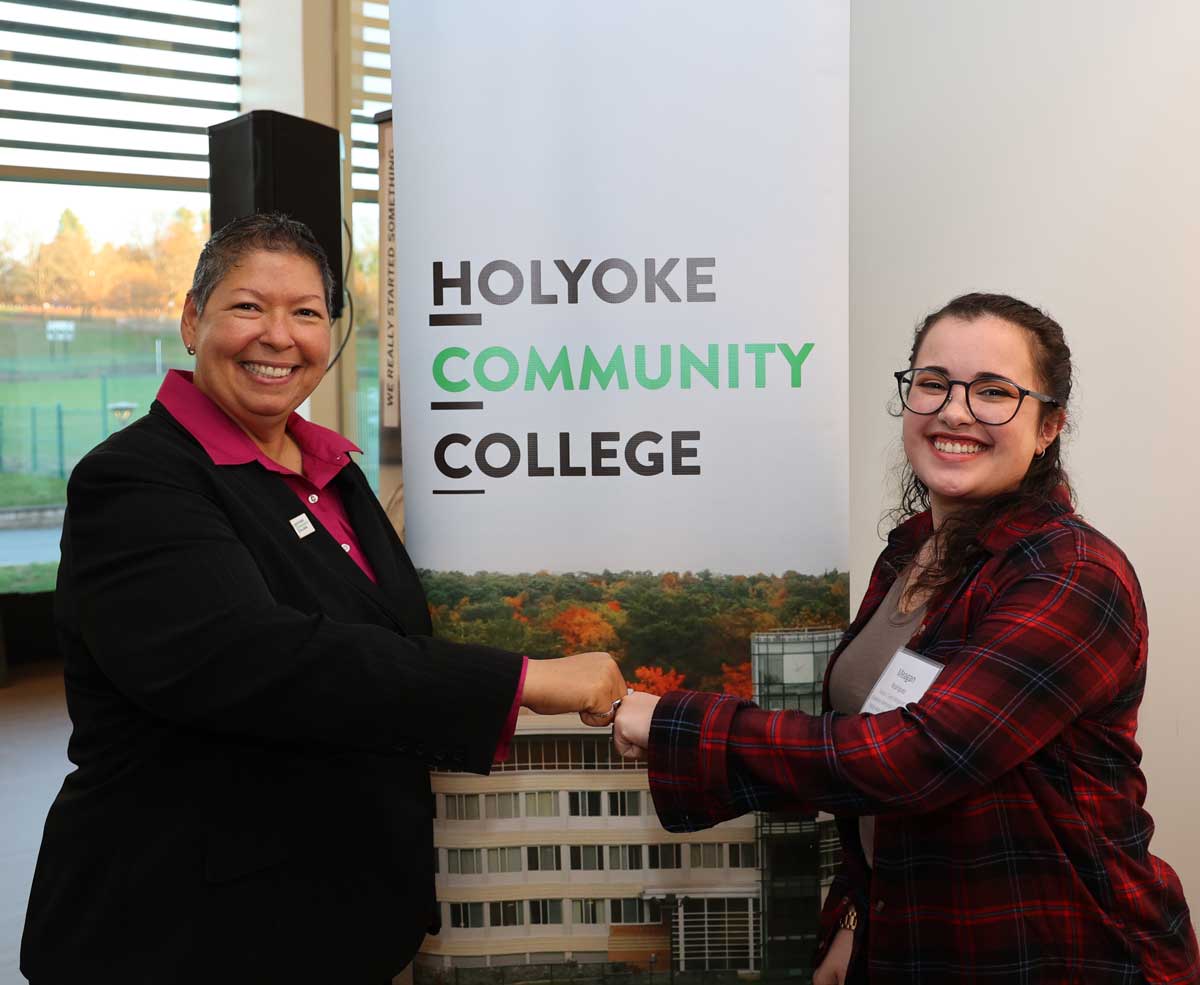Paul Hudgik ’78 believes philanthropy is a civic responsibility
1969
His assignment: Read aloud from The Hobbit, a book filled with unfamiliar words about fantastical creatures living in strange lands such as Eriador, Trollshaws, and Rhovanion, names difficult for the best readers to pronounce, let alone students like Hudgik, who at the time had an undiagnosed learning disability.
After stuttering and stumbling for several minutes, the teacher cuts him off and says, You’ll never amount to anything.
Granby High
Because of poor grades, Hudgik is placed in a lower academic level he and his classmates nicknamed “The Zoo.” It’s a track for factory work. Even so, he scores in the top 1 percent on the abstract reasoning section of a high school aptitude test. His guidance counselor, buying into the perception of Hudgik as a dim, unmotivated student, accuses him of cheating.
Senior year
A different guidance counselor asks about his future plans. “I’m going to pump gas or work in the mills,” Hudgik sarcastically tells her.
“No, you’re not,” she says. “You’re going to college.” She helps him submit an application to HCC, where he flounders for a year before dropping out. He finds a job in a computer cable factory, making decent money, but ultimately decides he’s meant for something else and reenrolls.
A turning point
Hudgik meets with his advisor, Professor Richard Kumor, and explains his interest in business and investing.
After a short conversation, Kumor suggests Hudgik might have dyslexia, the first to do so. He helps Hudgik arrange his academic schedule, picking out courses and instructors best suited for his learning style.
“He told me, You’re always going to have trouble spelling, reading, and so forth, but don’t get discouraged,” Hudgik remembers. “You can study something for three hours and get a B. Somebody else might do it for an hour and get an A. The difference between you and them is you will actually understand it, be able to use it, and make it work. You’ll be able to connect the dots.”
Connect the dots he did.

Finding his footing
Hudgik quickly noticed the difference between his experiences in high school and HCC. Rather than assign a chapter followed by a quiz, his HCC instructors asked for chapter outlines to ensure he understood the material he read. He was also allowed to take as much time as he needed on exams.
“I remember taking my first test in Mr. Kumor’s class,” Hudgik said. “I’m miserable and anxious. “The kid next to me says, ‘Hey, don’t sweat it. It’s just a test.’ Then he starts quietly singing “Here Comes the Sun,” and Mr. Kumor just lets him sing. That brought my anxiety down, and I ended up getting an A in the course.”
He also made Dean’s List that semester, an honor his mother saw published in the Holyoke Transcript.
“The past was forgotten,” he said. “I was no longer the kid who graduated from Granby High School, 115 out of 115 students, the bottom of my class. I was excited, motivated, and respected.”
With his associate’s degree in hand, Hudgik transferred to the University of Massachusetts Amherst, where he met his wife, Barbara, and discovered a knack for entrepreneurship. As dorm president, he booked the hall’s communal space for events, managing thousands of dollars that they used to pay for semi-formals and ski trips to Killington.
UMass led to a long career in sales for several large companies, including Bic, Channing Bete, and Canon. While his success came as no surprise to those who knew him well, Hudgik, 67, now retired, is quick to credit those who helped him along the way.
“I would not be where I am and would not have gotten done what I have without Holyoke Community College,” he said.
Philanthropic action
Hudgik believes philanthropy is a civic responsibility. Years ago, he decided to direct his monetary support to one of the organizations that matters most to him: HCC. For more than a decade, he has been a regular contributor to the HCC Foundation’s unrestricted fund, which goes toward the college’s greatest needs.
“Holyoke Community College was one of the most important things in my life,” Hudgik said. “I would not have met my wife if I didn’t go to Holyoke Community College. I would not have the kids I have, would probably not have had the career I had. That’s why I donate to Holyoke Community College. It’s a school that believed in me, treated me like an individual, and really helped me move forward with my life. I’m sure there’s a lot of students out there like me.”






